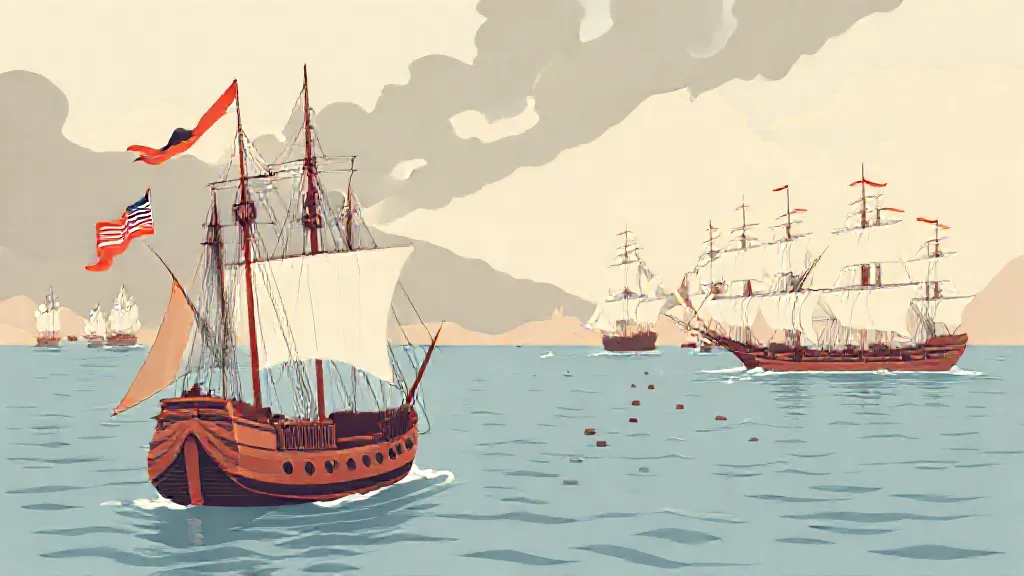The question of where the United States fought its first overseas war is pivotal in understanding the evolution of American military engagement and foreign policy. This conflict, often overlooked in mainstream discussions, was the First Barbary War, which occurred from 1801 to 1805. This war marked a significant departure from the isolationist tendencies that characterized the early years of the republic and set the stage for future American interventions abroad.
The Context of the Barbary Wars
In the late 18th and early 19th centuries, the Mediterranean region was fraught with piracy, particularly from the Barbary States of North Africa, which included Algiers, Tunis, and Tripoli. American merchant ships were frequently targeted for plunder, leading to considerable financial losses and threats to American lives. At the time, the U.
S. had recently gained independence and was eager to establish its presence on the global stage, but it lacked the naval power to defend its interests effectively.
The Prelude to War
Prior to the First Barbary War, the United States had attempted to negotiate peace through tributes and payments to the Barbary rulers.
This approach was common among European nations, who paid for safe passage. However, the increasing demands for tribute, along with the humiliation of American sailors, led to growing frustration among American leaders. The election of Thomas Jefferson in 1800 marked a turning point, as he was opposed to paying tribute and believed in a stronger naval response to protect American interests.
The Outbreak of Conflict
In 1801, the Pasha of Tripoli declared war on the United States after demands for increased tribute were refused. Jefferson, adhering to his principles, dispatched a naval squadron to the Mediterranean to confront the Barbary pirates. This marked the beginning of the First Barbary War, which was characterized by naval engagements and blockades rather than traditional land battles.
The U.S. Navy's actions during this conflict were crucial in asserting American naval power and protecting commerce.
Key Battles and Strategies
The war featured several notable encounters, including the famous naval battle at Tripoli Harbor and the daring raid led by Lieutenant Stephen Decatur, who famously burned the captured USS Philadelphia to prevent its use by the enemy. The U.S.
strategy relied heavily on naval blockades and the use of small, agile ships, which proved effective against the larger, less maneuverable vessels of the Barbary pirates. These tactics not only highlighted the evolving nature of naval warfare but also demonstrated the importance of a strong navy in safeguarding national interests.
The Aftermath and Implications
The First Barbary War concluded in 1805 with a negotiated peace, but it had lasting implications for American foreign policy.
The conflict established the United States as a formidable naval power and set a precedent for future military interventions. It also marked a shift in American attitudes towards international relations, moving from a passive approach to one that embraced military action when necessary to protect national interests.
Legacy of the First Barbary War
The legacy of the First Barbary War is significant in the context of U.
S. military history. It laid the groundwork for subsequent conflicts, including the Second Barbary War and later engagements in the Caribbean and the Pacific.
Moreover, it illustrated the complexities of American foreign policy, where economic interests often collided with ethical considerations regarding warfare and diplomacy.
Further Reading and Exploration
For those interested in delving deeper into the First Barbary War and its implications, several resources are invaluable. Books such as "The Barbary Wars: American Independence in the Atlantic World" by Frank Lambert provide comprehensive insights into the period.
Additionally, primary sources, including letters and official documents from the time, offer a vivid portrayal of the challenges faced by early American leaders in navigating foreign threats.
Conclusion: Understanding Early American Military Engagements
In conclusion, the First Barbary War represents a crucial chapter in the history of American military engagements abroad. It was not only the first overseas conflict for the United States but also a formative experience that shaped the nation’s approach to foreign policy and military intervention.
Understanding this conflict is essential for comprehending the broader narrative of American history and its ongoing relationship with the world.
